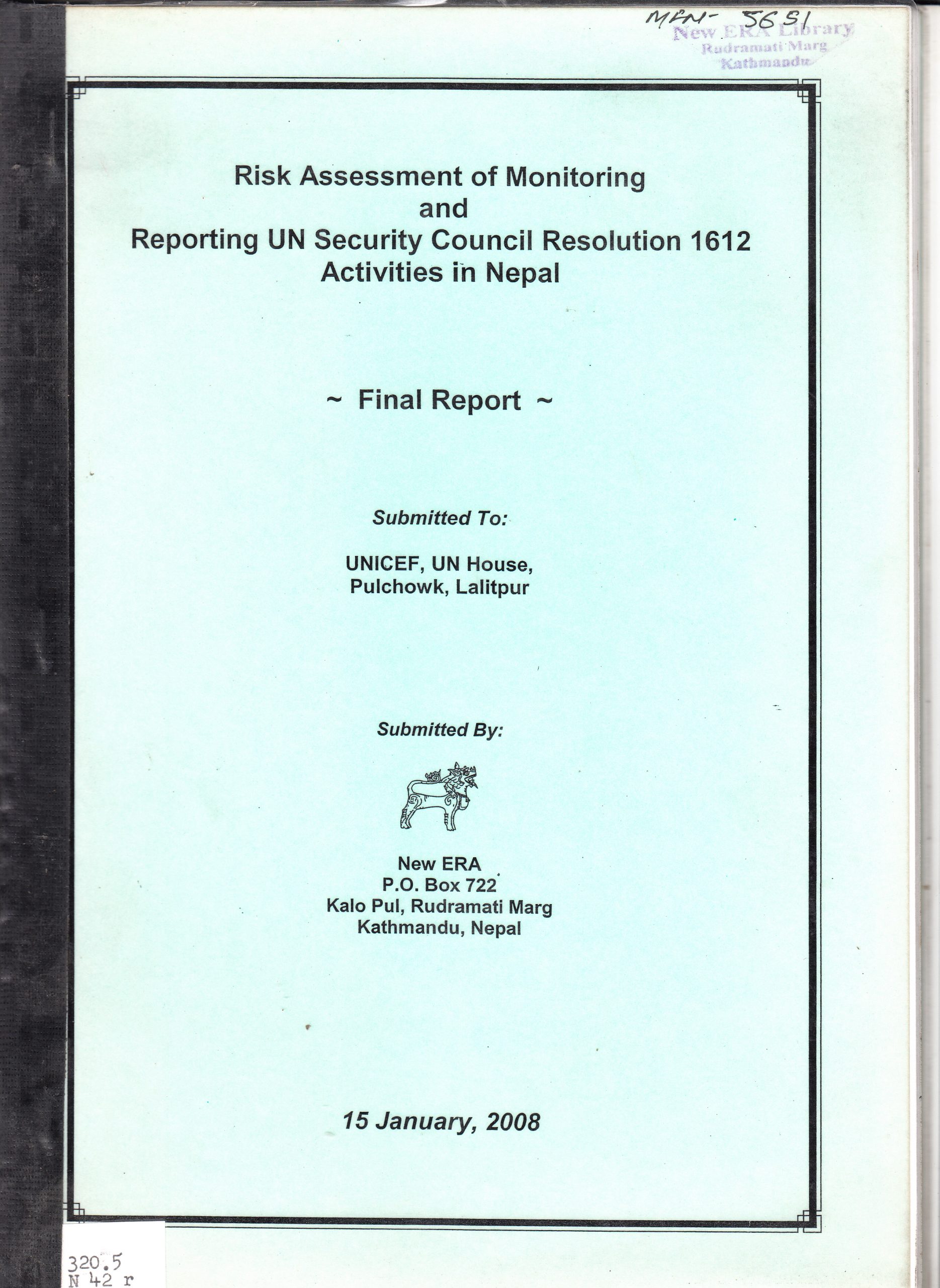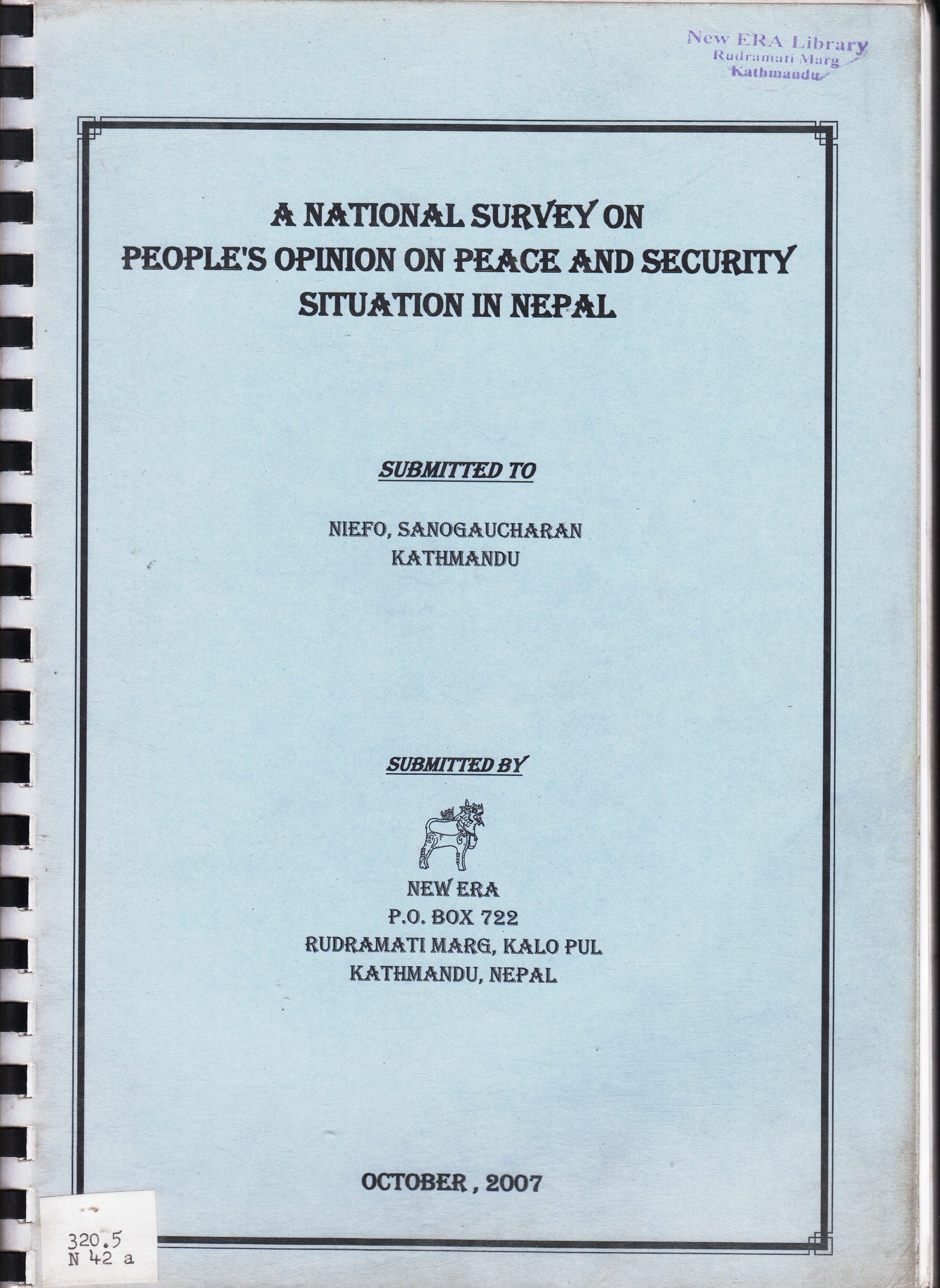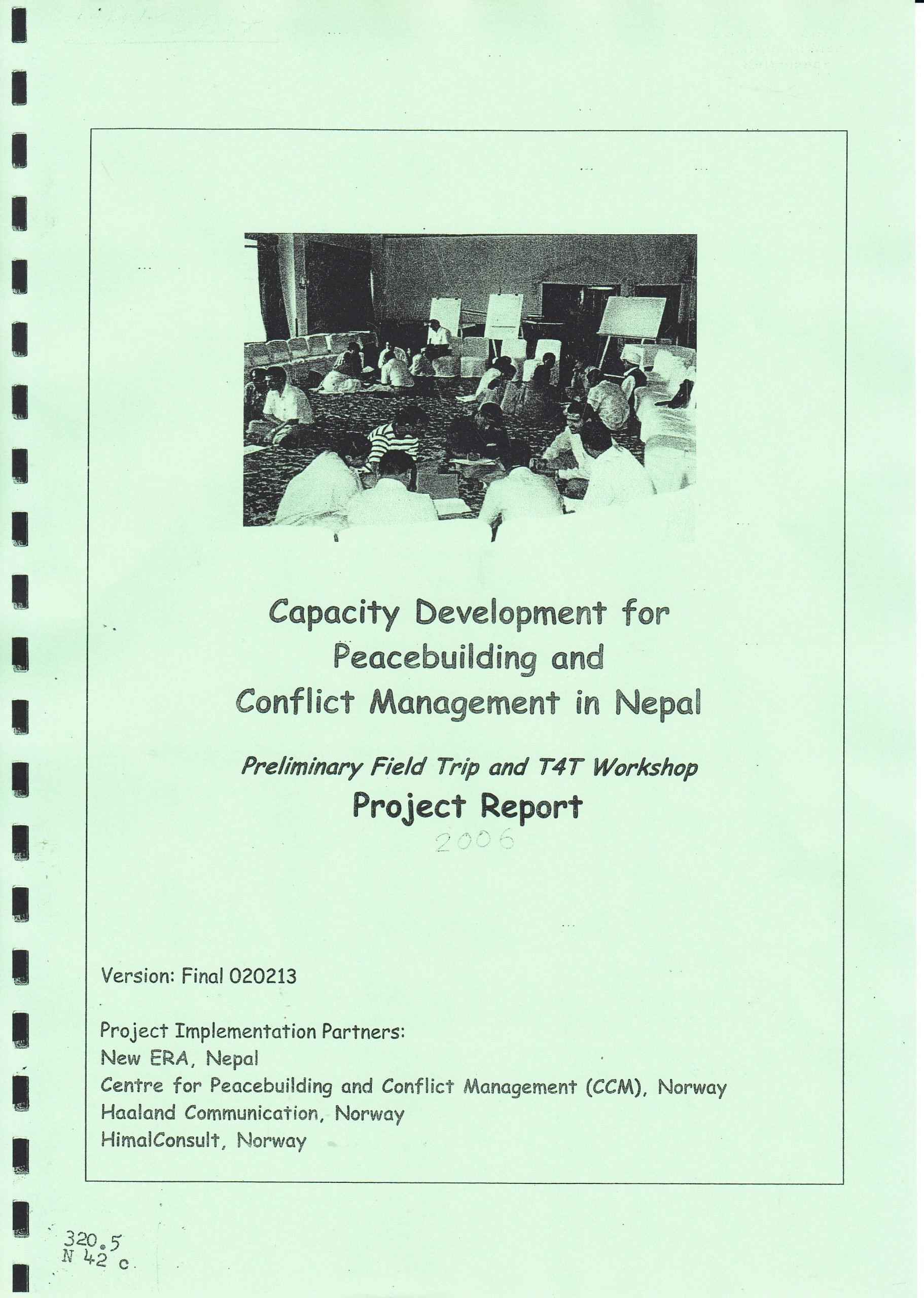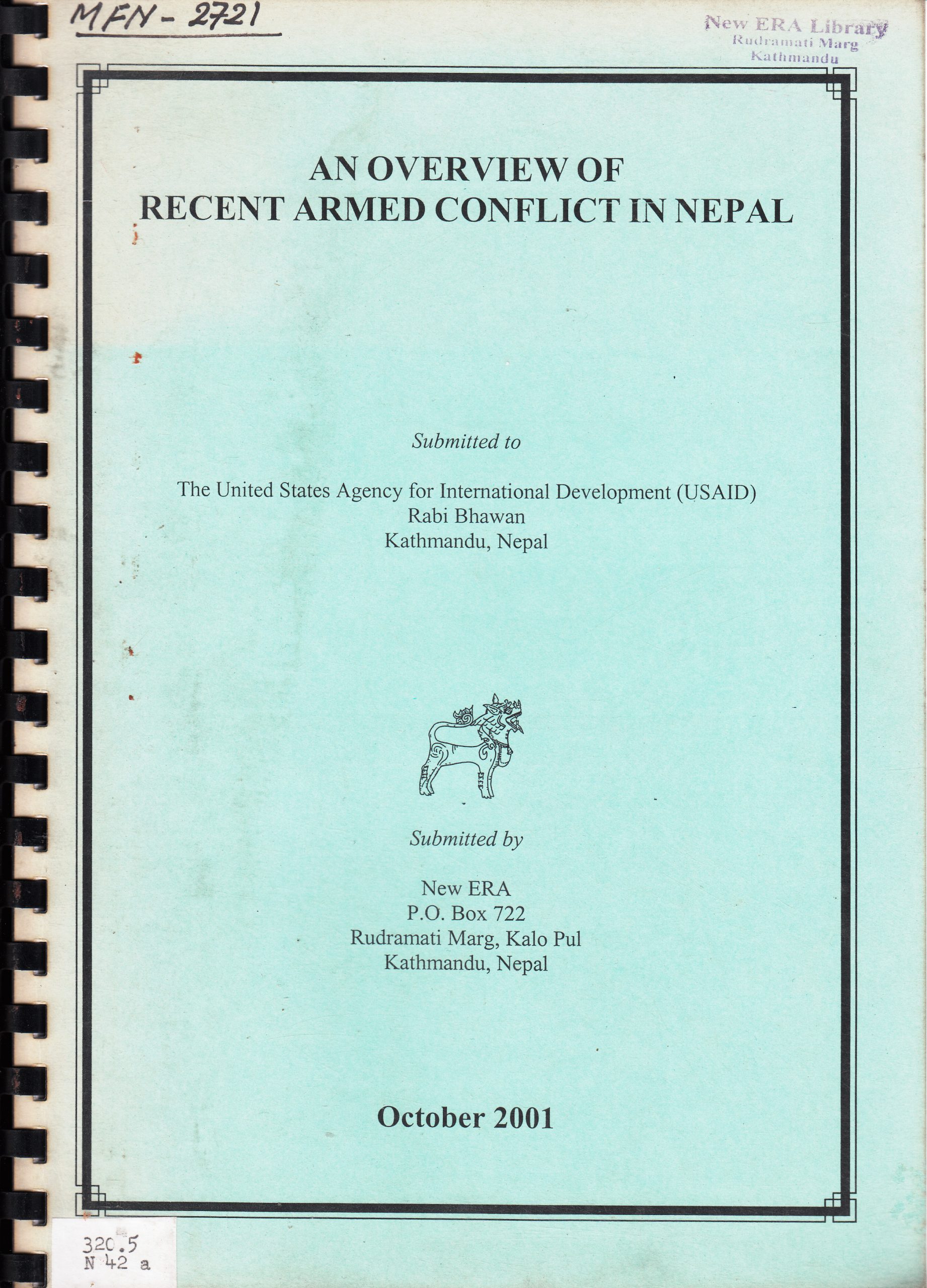This study aims to assess the effects of conflict on the ordinary people’s economic, social and political lives in order to improve international assistance to post-conflict countries. A pre-testing of this survey had been done under a separate project. It is a quantitative survey which covers 1,200 households of 48 VDCs of 17 districts of Nepal. The data will be useful in domestic and international policy-makers besides academic studies. This study was being done in association with Columbia University and New York University in America and Uppsala University in Sweden
Report Type: Peace & Conflict Management
Risk Assessment of Monitoring and Reporting UN Security Council Resolution 1612 Activities in Nepal
The primary objective of this study was to assess the overall security situation in three selected districts – Siraha (eastern region), Bara (central region) and Surkhet (mid-western region). The study assessed the threats and risks actually faced by child rights monitors and informants. The study presents the strategies adopted by child rights monitors and informants to cope with the situation, and provides recommendations and suggestions to minimize these threats.
National Survey of the People’s Opinion on the Peace and Security Situation in Nepal
This was a national level survey of the people’s opinions on the peace and security situation in Nepal conducted by New ERA for the Nepal International Electoral Forum (NIEFO)/CHEMOINCS International. The purpose of this survey was to understand the people’s views regarding peace and security in the country. The survey included a representative sample of 4,500 adult respondents across 75 districts.
Capacity Development for Peace-building and Conflict Management in Nepal, Project Report
At the moment Nepal is suffering as a result of different types and levels of conflict in many different sectors. To address this New ERA joined hands with CCM Norway to build the capacity of Nepali Government and civil society organizations in peace building and conflict management. New ERA and CCM conducted a five day workshop-cum-training for 33 participants from different GOs, NGOs and private organizations. The main objective of the workshop was to give participants basic knowledge and skills in relation to dealing with conflict situations in their respective areas of work. The workshop was facilitated by CCM trainers and supported by New ERA. The workshop was followed by a one day seminar and a one day follow-up workshop for the same participants six weeks after the initial 5 day workshop.
Capacity Building in Peace Building and Conflict Management in Nepal
At the moment Nepal is suffering as a result of different types and levels of conflict in many different sectors. To address this New ERA joined hands with CCM Norway to build the capacity of Nepali Government and civil society organizations in peace building and conflict management. New ERA and CCM conducted a five day workshop-cum-training for 33 participants from different GOs, NGOs and private organizations. The main objective of the workshop was to give participants basic knowledge and skills in relation to dealing with conflict situations in their respective areas of work. The workshop was facilitated by CCM trainers and supported by New ERA. The workshop was followed by a one day seminar and a one day follow-up workshop for the same participants six weeks after the initial 5 day workshop.
Profile of Organizations Conducting/Supporting Training on Peace Building and Conflict Management in Nepal
This study was initiated and conducted by New ERA using its own financial and technical resources as a part of the development of a project on ‘Peace Building and Conflict Management Capacity Building in Nepal’ in collaboration with Himal Consult, Norway. The study presents a profile of the organizations and individuals working on peace building and conflict management in Nepal. The study identifies potential partners/ collaborators and establishes a recruitment pool of the trainers and trainee to work in peace building and conflict management. It also assesses the need for training of trainers in conflict management from the perspective of the peace workers themselves.
An Overview of Recent Armed Conflict in Nepal
This study was conducted when the Maoist armed rebellion of 1996-2006 was intensifying and having serious impact on virtually all aspects of the country. The study examines the causative factors behind the armed rebellion and assesses its impact on local governance and service delivery, especially in the rural areas. On the basis of analysis the studying provided recommendations in the areas of political negotiation, governance reform, improving social justice and additional economic initiatives to mitigate the on-going conflict.







